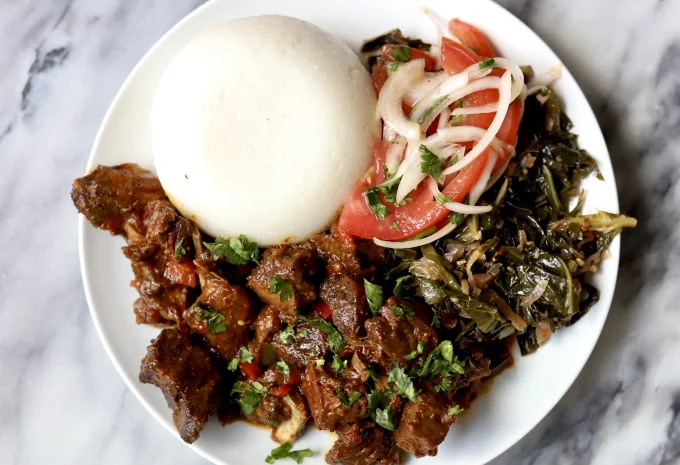Larry Madowo’s first day at CNN as Nairobi correspondent saw him issue a hard-hitting verdict on the vaccine shortage in Kenya – even as the government continues to re-assure the public of incoming shipments of Pfizer, Chinese and Johnson & Johnson vaccines in response to challenges in acquisition of AstraZeneca vaccines.
Many included in the first phase of the roll-out who received their first shots are yet to get their second shots as expected while others haven’t received a single shot. Overall, less than 2% of Kenya’s population been vaccinated – with 3, 887,034 people having gotten a jab as of May 3 according to Health Ministry data.
“In simple terms, Kenya is on the verge of a crisis,” Madowo asserted. “If you cannot vaccinate people and there’s a fear of a new surge by July then it means there’s a possibility that you might have the country overrun with cases and a healthcare system that just cannot handle it.”
“Only 2% of people vaccinated in a country of 50 million is a drop in the ocean and the complication is that by the end of this month or early June there will be no more vaccines and Kenya is not sure when it will get the next vaccines,” he noted – further revealing that his own 96-year old grandmother had not been vaccinated. The elderly were among those included in the first phase of the roll-out.
He went on to highlight the fact that India’s own Covid-19 crisis had occasioned challenges in the shipment of vaccines promised to countries under the Covax facility such as Kenya. Under the Covax facility, Africa had expected to acquire 75 million doses but so far only 12 million doses had been delivered.
Kenya has so far received 1.02 million doses.
The journalist maintained that Kenya and other countries had to find ways to be self-sufficient.
At the start of May, Health Cabinet Secretary Mutahi Kagwe revealed that the government had allocated Ksh7 billion for the acquisition of vaccines from various manufacturers to avoid the uncertainties currently in play.
READ ALSO>>>>>Larry Madowo Returns To Nairobi as CNN Correspondent
The state also expects to purchase enhanced storage equipment, with the Pfizer vaccines requiring minus 70 degrees in storage.
According to the CS, the government banned private sector role involvement in vaccine acquisition and distribution as it would create confusion.
Other than the vaccines currently being acquired, the government expects doses from the Covax facility and the African Union (AU).
“Given what’s happening in India where they are reporting over 200,000 COVID cases per day we think there will be a delay, it will be difficult for the Indian government to release the number of vaccines required for the African countries under the COVAX facility,” Kagwe had stated.
READ>>>>>COVID-19 Vaccines Import Ban Takes Away a Lifeline For Private Hospitals
Watch Madowo’s conversation with Zain Asher below:
“Kenya is on the verge of a crisis.”@LarryMadowo reports live from Nairobi, #Kenya where the country is just weeks away from running out of #Coronavirus vaccines.@ZainAsher @CNNAfrica @AfricaMediaHub pic.twitter.com/sVJM9Abjm4
— One World CNN (@OneWorldCNN) May 17, 2021












Leave a comment